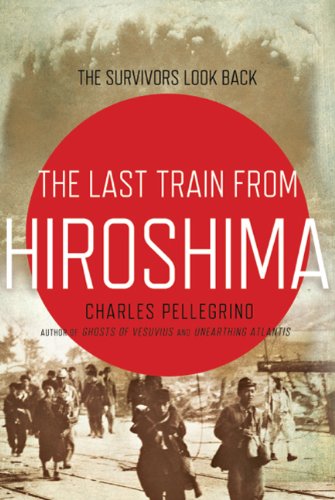 Sarah Weinman has a good post up at Daily Finance about two announcements this week from Amazon: first that they have made a deal to publish a new, original book by crime author J. A. Konrath in their Amazon Encores program, previously devoted to republishing older and out-of-print titles. Konrath, who has promoted his own work very effectively on the web and has blogged about how successfully he has sold his work at a very low price on Kindle, parted company with the trade house who had published his earlier books and now will sell his work directly through Amazon. Weinman points out that, alongside the second announcement--that Amazon will start a wholly new publishing program called Crossings that will publish literature in translation (books formerly unavailable in the U.S.)--that the online retailing behemoth will now be competing directly with publishers, in an arena where Amazon has some powerful advantages.
Sarah Weinman has a good post up at Daily Finance about two announcements this week from Amazon: first that they have made a deal to publish a new, original book by crime author J. A. Konrath in their Amazon Encores program, previously devoted to republishing older and out-of-print titles. Konrath, who has promoted his own work very effectively on the web and has blogged about how successfully he has sold his work at a very low price on Kindle, parted company with the trade house who had published his earlier books and now will sell his work directly through Amazon. Weinman points out that, alongside the second announcement--that Amazon will start a wholly new publishing program called Crossings that will publish literature in translation (books formerly unavailable in the U.S.)--that the online retailing behemoth will now be competing directly with publishers, in an arena where Amazon has some powerful advantages.
With an admirable trace of hesitation at trotting out the buzzword of 2010, Sarah calls these developments "game changing" and quotes the ever-brainy Mike Shatzkin in support of the statement. Meanwhile the also-savvy MJ Rose has a great post at her blog making a seemingly contrary statement: she says there are no game changers any more. So has the game changed, or not?
At the risk of saying "everybody's right," I have to take a different point of view: I agree with Weinman and Shatzkin that it's a momentous development if Amazon is really going to start competing head to head with publishers. They have already started picking off the backlist of major authors like Stephen Covey and Paulo Coelho, and if they are now going to get into the frontlist business things will get more interesting. But if you look at the larger picture, it's this: EVERYTHING is changing. So many elements of the industry as I've known it are in play that the one thing we can be sure of is, the game is going to be different five or ten years from now. But I think it's way too early to know whether this particular play of Amazon's is going to be decisive in their favor. Here are some things we don't know that will bear on the answer:
Will Amazon really want to be in the editorial business? It's one thing to find worthy or marketable backlist titles or new books by authors who have proved themselves. Seeking works undervalued in the current marketplace--like translations--is a logical next step. But to truly compete with publishers, Amazon will need editors--people who find new books and attempt to choose ones that will connect with readers. This process is inherently unpredictable and therefore risky and inefficient--very different from their algorithm-driven business of selling existing books, even obscure "long tail" titles. I suspect Amazon Crossings will find, even with the company's unique ability to reach, say, "readers who bought French novels by women in translation," that some titles on their list do much better than others.
How big a share of the e-book market can Amazon retain as e-readers proliferate? This question is complicated by the fact that you can read Kindle books on devices beside the Kindle, but whether authors are willing to give Amazon exclusivity on their e-books will surely depend on how much of the market they risk giving up.
Or, will Apple decide to compete with Amazon in the same way? The explosive growth of the iBooks store is going to give Apple similar power to Amazon's in presenting authors to readers. So far they have taken a very different approach, dealing only with the biggest publishers and a few aggregators. But they deal directly with thousands of suppliers in the App Store, and may well move in that direction once iBooks are well established.
How will contract terms shift between authors and publishers in the coming years? Konrath points out that he makes more money self-publishing via Kindle for $2.99 a copy than he might have in a conventional print deal with a major house, Hyperion, at $14.99. If author/publisher deals evolve, as they are likely to, will the marketing and distribution power of a big publisher become less easy to give up?
How many authors will be able to replicate Konrath's success at marketing himself? Amazon didn't pick Konrath to sign up just because of the quality of his writing. He has been a creative and assiduous promoter of his work, as Jason Pinter observes in a HuffPost piece. In my experience only handful of authors have the marketing savvy and drive Konrath has shown. If you're already a bestselling author, or a celebrity, you may not need Konrath's smarts. But the model that works for Konrath or Covey may not work for a majority of authors. (This of course still leaves the danger for publishers of Amazon creaming off the most profitable books at the top of the sales curve.)
How will the role of agents affect the way all this unfolds? I'm not the first person to notice that if there's a danger to publishers in disintermediation, there's a real risk of it for agents too. If all an author needs to do to make $400 a day is upload titles to the Kindle store (as Konrath says he's doing), does she need an agent for that? There's a disincentive for agents to move toward a world where they can't auction projects to Random, Hachette et al. Will they push authors in a different direction, and how many authors will value their agents' advice more than the revenue the agents carve off the author's income?
I realize I'm much better at asking questions on this blog than at giving answers. But my point here is that with the book marketplace in flux in so many different directions (the above are only a few), it's not even totally clear what "game" we're playing, much less whether even big news like this week's has "changed" it.
Illustration: Matrix Chessboard, via Wikimedia Commons








